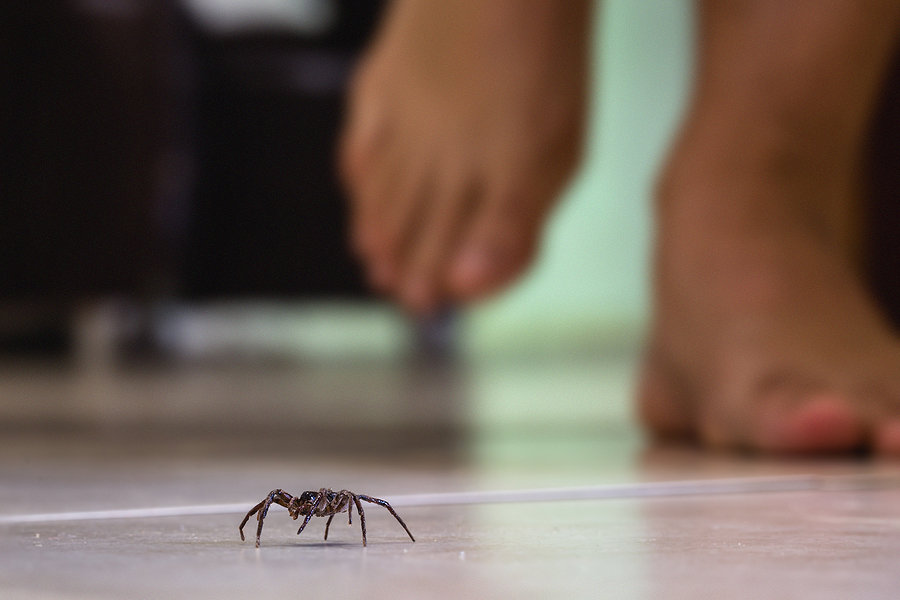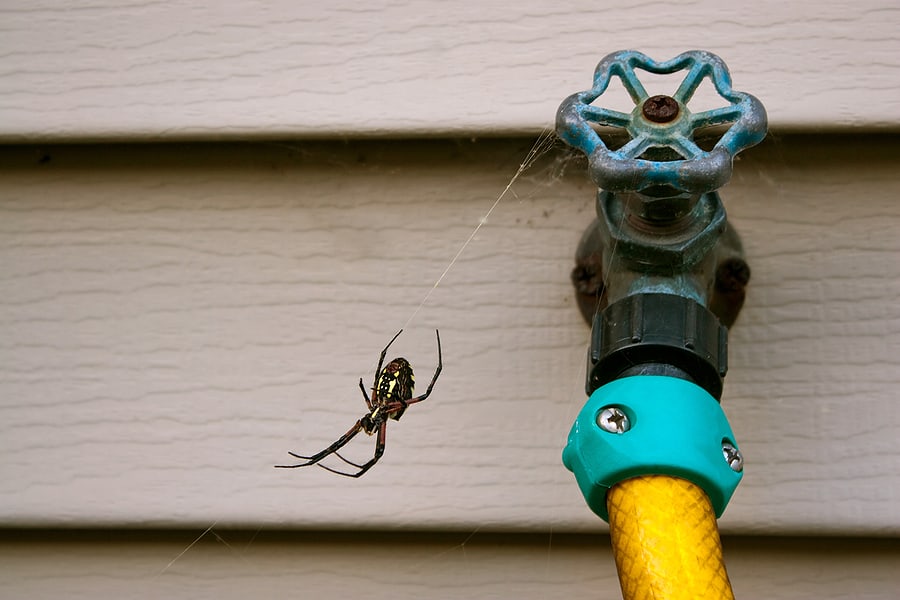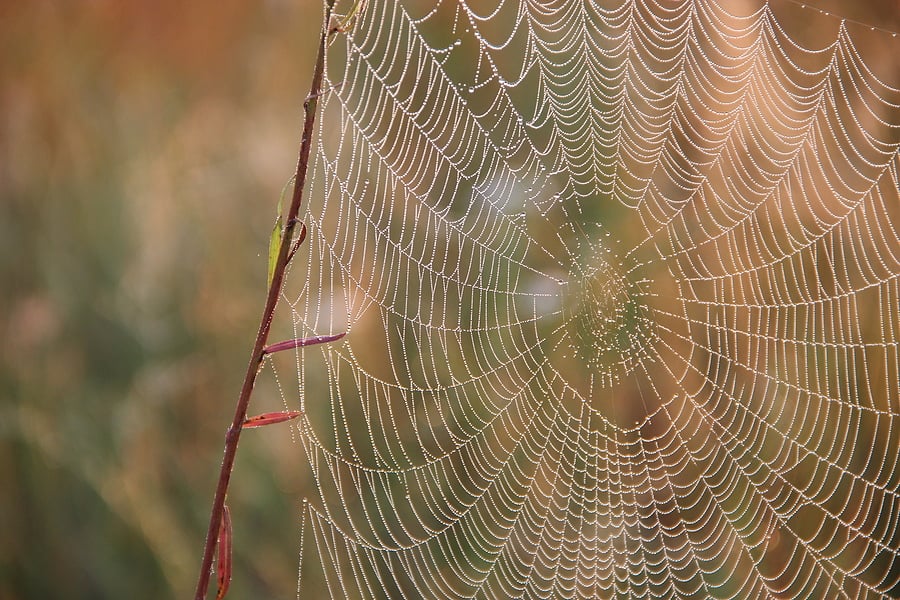READY TO GET STARTED?
REQUEST A FREE ESTIMATE
Fill out the form below or call (888) 466-7849 for a free, no-obligation estimate.

Spiders are considered year-round pests, but they seem to come out in full force during the summer months. Some common spiders you may encounter this summer include wolf spiders, orb weavers, garden spiders, house spiders, brown recluse spiders, and black widow spiders. While most of these are harmless, brown recluses and black widows can be dangerous to humans with their venomous bites.
The spiders you see in the summer most likely aren’t just now making their way into your home; there’s a good chance they’ve already been hiding out inside for a while. They will commonly emerge in large numbers in the summer for two main reasons:
Seeing a spider here and there inside your home is usually nothing to worry about; they can sneak in through open windows, doors, etc. Seeing them in large numbers, however, can indicate a much bigger problem. Spider infestations can be the result of:
Having a spider infestation in your home can leave you with webs everywhere, the risk of spider bites that can be painful and potentially dangerous, and the possibility of other pest infestations, as well. You can keep spiders out by:
If you have a problem with spiders, contact your local pest control company for a thorough inspection and treatment plan.
Controlling Birds During the Summer Months

Although spiders are considered a year-round pest, they become more visible and active in the spring. Overwintering pests like spiders emerge as the weather warms up to lay eggs for the approaching season. Spiders are predators, preying on smaller insects for food. They are usually not a huge threat to humans with only a few venomous species in our area. In fact, they can be quite beneficial to have around your home, working as a form of natural pest control by eating other insects you may have around.
If the thought of sharing your home with spiders creeps you out, don’t fret! Here are some spider prevention tips you can use this spring to help keep these pests out.
Protecting Your Pets from Fleas and Ticks
What Happens During the Bee Relocation Process?

When we see a spider, many of us will run away or immediately call the local pest control company to remove them! Certainly spiders are not the most popular of pests, but some are beneficial to us. While we can agree that we don’t want these pests inside our home, it’s important to know the impact they can have on our environment. Here are some spiders that are actually beneficial to have around!
Crevice Spiders
Light to dark brown in color, these spiders are often mistaken for the brown recluse spider. The difference, however, is that the crevice spider does not have the signature violin shape marking that the brown recluse has. These spiders can be found in corners and crevices (where they get their name), especially in areas like ceiling corners, baseboards, and window frames. While these spiders are not venomous, they will bite if they feel threatened. This is very rare, though. The crevice spider is beneficial to humans as they will typically eat common household pests like flies, roaches, beetles, and wasps. This spider can be considered a “free” exterminator!
Yellow Garden Spider
The yellow garden spider likes to be outdoors in sunny areas. They will spin large circular webs and anchor them to plants. Females are black with bright yellow patches on their abdomens while the males are much smaller with less yellow on their abdomen. These spiders don’t pose a threat to humans; they do, however, produce venom that is harmless to humans. The venom they produce helps them to immobilize prey such as flies, bees, and other flying insects. These spiders are perfect for helping keep these flying pest populations from getting into your home!
Lynx Spider
Like a plant leaf, this spider has bright green coloring and can sometimes have orange and black dots on their legs. The lynx spider is known for its quick movements, often jumping large distances to capture their prey. These spiders are found in open fields, especially those with tall grass. While they bite only for defensive purposes, they don’t pose a threat to humans. These spiders are extremely useful in agricultural management as they will eat crop-destroying pests like nectarine insects, helping protect crops from destruction.
While it’s nice to have some helpful spiders outside of the house, that doesn’t mean we want them on the inside. If you notice one of these spiders frequenting your home, reach out to your local pest control company who can safely eliminate them and recommend a prevention plan.